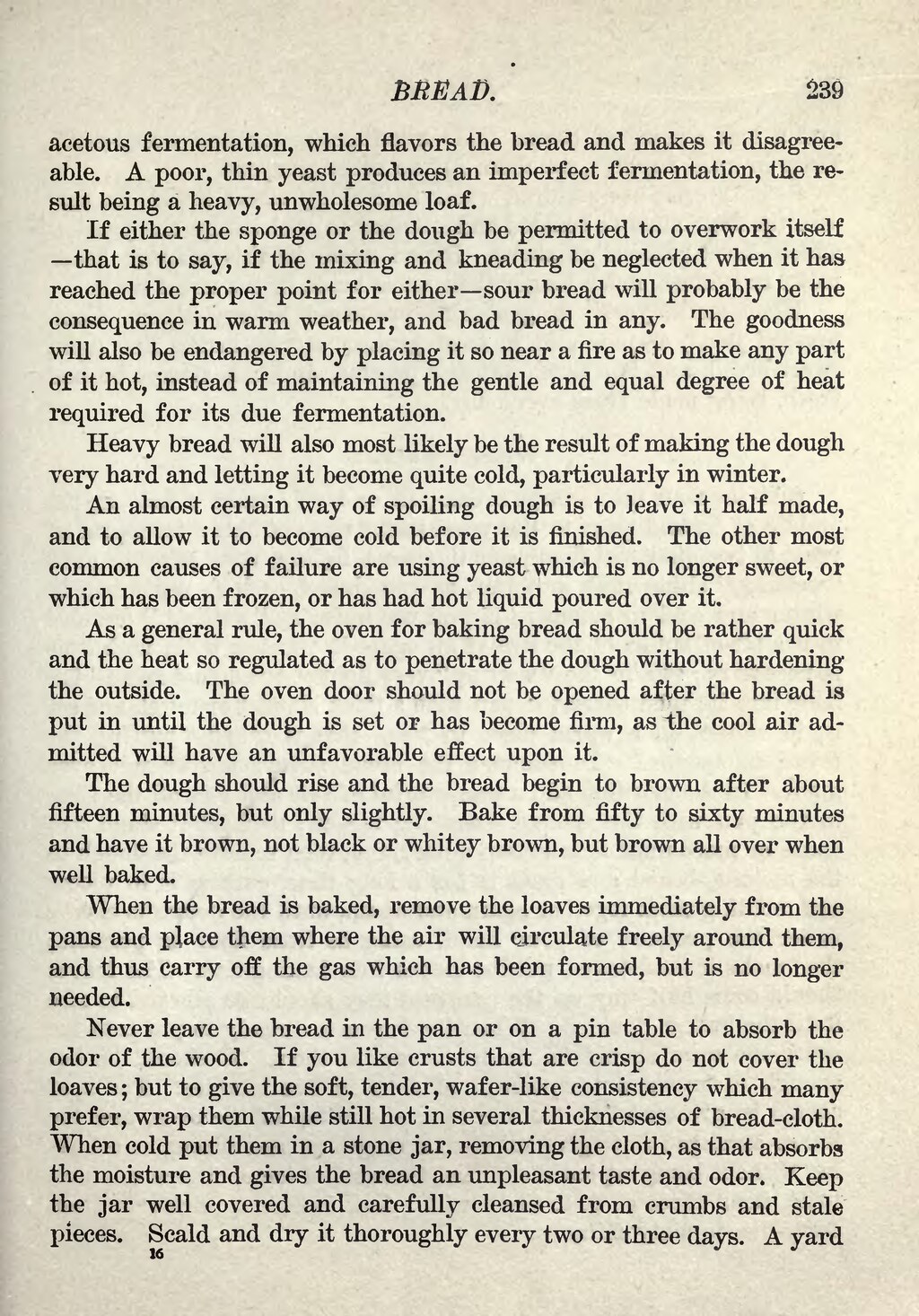acetous fermentation, which flavors the bread and makes it disagreeable. A poor, thin yeast produces an imperfect fermentation, the result being a heavy, unwholesome loaf.
If either the sponge or the dough be permitted to overwork itself—that is to say, if the mixing and kneading be neglected when it has reached the proper point for either—sour bread will probably be the consequence in warm weather, and bad bread in any. The goodness will also be endangered by placing it so near a fire as to make any part of it hot, instead of maintaining the gentle and equal degree of heat required for its due fermentation.
Heavy bread will also most likely be the result of making the dough very hard and letting it become quite cold, particularly in winter.
An almost certain way of spoiling dough is to leave it half made, and to allow it to become cold before it is finished. The other most common causes of failure are using yeast which is no longer sweet, or which has been frozen, or has had hot liquid poured over it.
As a general rule, the oven for baking bread should be rather quick and the heat so regulated as to penetrate the dough without hardening the outside. The oven door should not be opened after the bread is put in until the dough is set or has become firm, as the cool air admitted will have an unfavorable effect upon it.
The dough should rise and the bread begin to brown after about fifteen minutes, but only slightly. Bake from fifty to sixty minutes and have it brown, not black or whitey brown, but brown all over when well baked.
When the bread is baked, remove the loaves immediately from the pans and place them where the air will circulate freely around them, and thus carry off the gas which has been formed, but is no longer needed.
Never leave the bread in the pan or on a pin table to absorb the odor of the wood. If you like crusts that are crisp do not cover the loaves; but to give the soft, tender, wafer-like consistency which many prefer, wrap them while still hot in several thicknesses of bread-cloth. When cold put them in a stone jar, removing the cloth, as that absorbs the moisture and gives the bread an unpleasant taste and odor. Keep the jar well covered and carefully cleansed from crumbs and stale pieces. Scald and dry it thoroughly every two or three days. A yard
